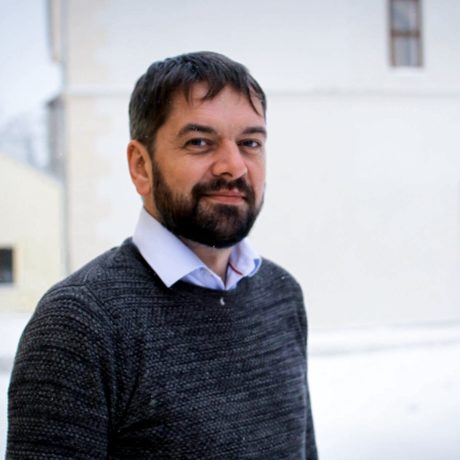There’s a lot of stuff going around these days, and not just frightening forms of flu in Asia. Authoritarian regimes are spreading throughout Eastern Europe. And Valentine’s Day is spreading in Scandinavia. Viruses, dictatorships and love are not newcomers on the global scene, but let’s hope that the latter eventually conquers all.
If you are among the many amorous contributors to shopping malls and florists on this day, spare a thought for those who can no longer bring their beloved a bouquet of flowers.
Spare a thought to those who love a prisoner of conscience.
Many of us imagine that Valentine’s Day is something the Americans came up with in order to make money when it’s not Halloween. But the origins of this holiday may go as far back as Rome in the second century, when St. Valentine was sentenced to death for marrying people who were not supposed to get married. The word “dictator” happens to come from Rome around the same time. Dictators and lovers have both followed us into the present. But often, in grave conflict.
When we think of a prisoner of conscience or a political prisoner, we might imagine a woman or man who is willing to go to prison for what they believe in. Or whose freedom was taken away because they defended universal rights in ways that authoritarian regimes see as something threatening.
They are heroes.
But what about those who linger outside the prison walls? We tend to forget that prisoners of conscience also have girlfriends, boyfriends, partners and spouses. That they were once two people who chose each other in freedom, but who now must go on alone – perhaps with a sense of terrible injustice. The one who is left on the outside must often be stronger – and braver – than the prisoner himself.
Spare a thought to those who love a prisoner of conscience.
Ivar Dale, seniorrådgiver
Khadija Askarova lives in a small village in the south of Kyrgyzstan. Most people in the country are long familiar with her family name. Her husband, Azimjan, is serving life in prison, miles away. Khadija has a book her husband wrote in prison, about his time as a human rights activist in freedom, about the torture he endured when he was arrested and about his life as a prisoner of conscience today. Khadija has worked tirelessly for her husband’s freedom for almost ten years. The Norwegian Helsinki Committee helped the couple to publish the book that she once brought to the UN Human Rights Committee in Geneva. They considered the facts and are demanding that Kyrgyzstan release her husband, but to no avail. The years go by and Azimjan is still in prison. His wife loves him and misses him. He’ll turn 70 next year. He may never be released.
Are prisoners of conscience always men? Far from it. Many of those who have been put away for their convictions are women. And many of them have boyfriends or husbands on the outside who love them, who wait for them – and who don’t know what to do, or where to turn for help. What is it like to be the husband of a woman sentenced to years in prison in a country like Turkmenistan, North Korea, Syria, Turkey or China? How are they treating her in there? What are they doing to her?
No man, no matter how strong, can punch his fist through a prison wall.
What about gay people who have a boyfriend or a girlfriend they can’t even say out loud that they’re missing? Sometimes authoritarian regimes inflict a sort of pain on people that they can’t even speak openly about.
But sometimes Valentine or Valentina are not alone, but together.
Two years ago, Russian activist Anna Pavlikova was arrested, accused of participation in an extremist organization that supposedly had planned to overthrow the government. One of the first people to publicly support her was another activist, Konstantin Kotov. Soon, Anna was released from custody and placed under house arrest, while Kotov in turn was arrested and sentenced to four years in prison for going on Facebook and calling for protests against election fraud. This December, they got married in the “legendary” detention center Matrosskaya Tishina in Moscow. Anna in a wedding dress. And one of the guests wearing a t-shirt that said “Love is greater than fear. No, love is greater than everything.”
That’s one way to go about it, and not just for those who love a prisoner of conscience. Tomorrow, the fight against all the world’s viruses and dictators starts afresh.


